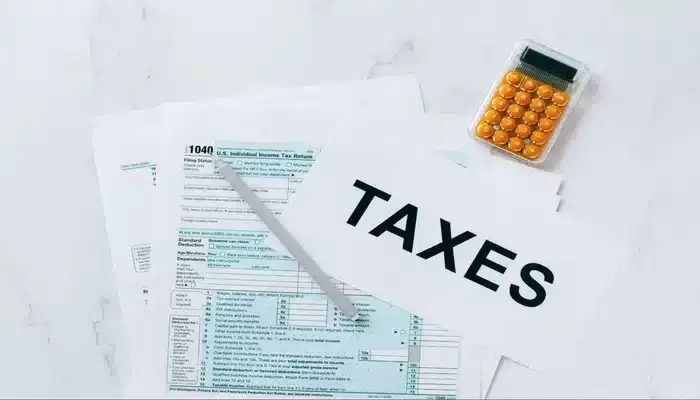Buying Property in Switzerland as a Foreigner: A 2022 Guide
If you are looking to invest as an expat or high-net-worth individual, which is what I specialize in, you can email me (advice@adamfayed.com) or WhatsApp (+44-7393-450-837).
Table of Contents
Introduction
This article will tackle how buying property in Switzerland as a foreigner works. For expats relocating to the country, the property market may be complicated because prices for homes vary greatly from region to region and restrictions on foreign ownership and Swiss financing can be quite hard to navigate.
Buying Property in Switzerland as a Foreigner: A Look on Homeownership Situation
With only 37.4% of the populace owning a home, Switzerland has one of the smallest homeownership rates on the planet. The cities of Basel and Geneva have the lowest percentages, with 16% and 18.3%, respectively. In Zurich, this number jumps to about 33%.
The likelihood of owning a house is higher among older Swiss citizens. Compared to only 26.1% of those between the ages of 25 and 65, 47.5% of people aged above 65 own their homes. The vast majority of homeowners reside in more rural areas. Numerous factors contribute to this, including urban population expansion that strains the housing supply, increasing housing costs, and bureaucracy that slows down real estate transactions.
Buying Property in Switzerland as a Foreigner: Rent vs Acquisition
When relocating to Switzerland, a lot of expats initially decide to rent due to the country’s lengthy home-buying procedure and the high property prices.
This is not to say that everyone will have a good experience renting here. The private rental market is quite competitive in desirable areas, and landlords receive numerous inquiries for each house.

Buying Property in Switzerland as a Foreigner: House Prices
Since 2019, the price of homes in Switzerland has been rising rapidly; in September 2020, it increased by 2.1% year over year. This came after a slump in 2017 when prices for buying property in Switzerland slipped for the first time in more than 15 years.
The astounding 80.5% rise in Swiss home prices between 2000 and 2016 prompted the Swiss National Bank to tighten lending standards and relinquish its ceiling on the value of the euro in an effort to curb the demand from investors.
However, there remains a solid demand for living spaces amid limited supply, which drives up costs for the Swiss real estate market.
As of the time of writing, buying an apartment within the country’s city center costs about 12,468 francs (13,256 US dollars) per square meter, according to cost of living data aggregator Numbeo. Meanwhile, the price per square meter outside the city center costs about 8,445 francs.
Buying Property in Switzerland as a Foreigner: Rules and Restrictions
Your prospects may be limited based on your background due to the tight limitations for buying property in Switzerland. If you are a citizen of an EU or EFTA member state and have a residency permit in Switzerland, you are eligible to purchase real estate there.
Alternatively, if you have a Swiss C Permit, which is the equivalent of permanent residency in Switzerland and enables non-Swiss citizens to work and live there without any restrictions, you may also be able to purchase real estate there.
You can purchase real estate in both situations with the same privileges as a Swiss citizen. In addition to purchasing a primary house, you can also purchase rental properties, vacation homes, or business spaces. You may even buy a house, but solely to live in, if you have a Swiss B Permit, which is designed for foreign citizens who wish to visit Switzerland temporarily. These foreigners may be from the EU or from outside the EU.
Outside of these groups, it may not be possible to purchase property or they may need to apply for a license to do so. This is for non-resident foreigners, foreign residents working legally in Switzerland (including those employed by UN organizations for diplomatic missions), or those with temporary or seasonal work permits.
In general, foreign nationals who are not residents of Switzerland are not allowed to buy land or other assets to use as their primary residence.
An approval from the canton where the property is situated is required before a non-resident can purchase a holiday house in the country. Additionally, the purchase has to be within the quota allowed for the specific canton and commune per year. About 1,500 quotas for vacation homes are issued each year to non-residents across Switzerland. The Swiss government allots this quota every year based on a variety of variables, such as the quantity of tourist facilities and new construction.
It is prohibited for non-residents to purchase a vacation house through an entity; they may only do so under their own name. Only on occasion or on a limited basis can the vacation house be rented out.
Moreover, a non-resident could only own one vacation property in Switzerland; vacation homes held by a spouse, a registered partner, and children under the age of 18 will be considered.
When it comes to commercial assets, no restrictions on buying property in Switzerland for business purposes are imposed on non-residents. Furthermore, non-residents are allowed to buy commercial real estate simply for investment reasons.
Take note that each canton has different requirements for licensing. It normally favors applicants acquiring a primary residence and have lived in the canton for at least five years.
Buying Property in Switzerland as a Foreigner: Costs
The buyer is responsible for paying all acquisition-related costs; no money is paid by the vendor. If you are the vendor, you also will not incur notary fees while selling your property.
The overall purchase fees, which comprise the notary charge, land registry fees, and taxes, range from 2.5% to 5% of the purchase price and depend on the specific canton. In Switzerland, notary fees and buyer’s taxes are defined by the local government and are assessed according to a charging scale based on parameters including mortgage and purchase price.
Buying Property in Switzerland as a Foreigner: The How-Tos
Finding Your Target
The majority of Swiss properties are available online through estate agents and property portals, similar to many other nations. Additionally, all major newspapers and specialty property publications also carry real estate listings. These are typically offered free of charge by estate agents and at retail centers.
In Switzerland’s largest cities, there is fierce competition for rental homes, thus some flats may already be rented when you see them posted. Property transactions typically proceed slowly when it comes to purchasing and selling, but having local knowledge gives you an edge. You can sign up with a local agent who has access to off-market homes.
Switzerland has stringent zoning laws. Existing properties on agricultural land, such as farmhouses, may be purchased and used by persons who do not engage in agriculture, but there may be strict restrictions on new construction, extensions, or renovations to buildings that are not necessary for agricultural labor.
Property Selection
It is unusual to request a professional property survey in Switzerland since such a request can be interpreted by contractors as a criticism of the caliber of their work. However, since the seller is not compelled to inform you of any concerns, a survey may give you a heads-up on significant issues, especially when it comes to older houses.
A range of property types are available in the country, from spacious detached homes to apartments in gated communities.
In case you reside in an apartment, you might already be accustomed to paying a service fee for the upkeep of communal spaces. In Switzerland, however, even detached homes are sometimes accompanied with yearly maintenance fees for shared spaces like parking lots, boat docks, and private roads. The expense for apartments could be as much as 1% of the purchasing price annually.
In Switzerland, local property taxes vary greatly from one canton to the next and from one commune to the next. When looking at houses, inquire about the tax rate too.
You still need to make an offer, secure a mortgage, approve the sale, and sign an agreement once you’ve found your prospective home. The procedure takes time to complete, which frequently takes three months or longer in the country.
When buying property in Switzerland, you should set aside 5% of the total cost for taxes and charges, which includes the property transfer tax, which in some regions can reach 3% of the purchase price.
Obtaining a Swiss Mortgage
You should secure a mortgage from a bank before making an offer. Mortgages can be negotiated both directly with lenders and through mortgage brokers.
When you submit an application, the lender evaluates the worth of the potential property and determines whether to extend you a mortgage. Usually, a 20% deposit is required, of which 10% must be in cash.
The costs of purchasing a home are not covered by any general aid programs in Switzerland. You will not be allowed to purchase a home in the country if you don’t have the required contribution of 20% towards the mortgage. Only first-time purchasers are eligible for assistance, whereby certain mortgage companies provide lower interest rates to help them.
Banks in Switzerland will loan up to 70% of the acquisition price. The loan usually takes the form of a current account overdraft that is secured by the property and has a 25-year repayment period.
Both setup fees and life insurance requirements are uncommon for Swiss banks. Different cantons have different fees for registering the mortgage. In Valais (southern Switzerland canton), it is 0.8% of the borrowed amount, while it is 0.5% in the canton of Vaud (western Switzerland).
The outstanding capital balance per quarter is subject to interest payments within that period. Therefore, the first repayments is expected to be higher; but, when the capital is repaid, the repayments will be lessened.
At roughly 1% variable rate or fixed at 1.5% for long term, Swiss interest rates have historically been the lowest in Europe (but they have jumped in 2022, which is the case for many nations across the world).
Making a Bid
Your ability to make an offer on a property could well be influenced by the amount that you can borrow when taking out a mortgage. Once you’ve made up your mind, submit your bid to the seller, either directly or through your real estate agent. Note that in Switzerland, real estate brokers frequently represent the seller, which indicates that you should be skeptical of their claims.
You could be required to pay a deposit now if the offer is approved. Upon confirmation, a notary holds this in escrow. You still require a signed contract outlining the conditions under which the deposit will be forfeited or refunded.
If your offer was accepted, you must also notify your mortgage provider and finish any outstanding documentation with them. Following that, they let the notary know that the mode of payment has been finished and the sale can now proceed.

Completing the Acquisition
Once you’ve received a mortgage offer, a notary will be chosen to oversee the sale on behalf of the buyer and seller. The agency or other cooperating agencies who have approved the sale often appoint the notary. Going with the suggested notary makes sense because agents typically select those who have had the best results working with their buyers in the past. However, you can also decide that you want to pick your own notary.
A notary conducts the property transfer in Switzerland. Notaries are public officials who represent both the buyer and the seller in numerous Swiss cantons. Notaries are unbiased for both parties and have a fixed fee structure.
Purchase Permit for Foreigners
The notary’s initial task is to compile the fundamental details of the deal. This comprises basic information about the buyers, basic information about the sellers, and basic information about the property being sold. This data is used to create a draft of the deed of sale and an application for a permit for buying property in Switzerland.
Before they can finalize a purchase by signing the sales deed, all foreign buyers in the country must submit an application and get a foreigner purchase authorization. The notary drafts the application and submits it to the relevant canton for the go-ahead. It usually takes 2-4 weeks to complete this (which is just a formality, really), and it would only be rejected if you already own another property in Switzerland or the property does not adhere to the rules.
There is no need to submit an application for a foreigner purchase permit if you are a resident of Switzerland, as proven by your passport or B/C permit. So, compared to a foreign buyer, you will be able to complete the acquisition 2-4 weeks faster, in general.
Deed of Sale
Once the foreigner purchase permit has been secured, the deed of sale must be signed within 30 days. This can either be done in person or by power of attorney. Well over 90% of the sales we agree in Switzerland are concluded by power of attorney due to convenience. The notary will also work with the bank for the registration of your mortgage.
The sales deed must be signed within 30 days after the foreigner purchase permit has been obtained. This can be completed either personally or through the use of a power of attorney. The latter can be a more practical choice for convenience, so many opt to do it in such way. Meanwhile, the notary will cooperate with the bank to register your mortgage.
Land Registry and Turnover
The deed of sale will be submitted to the Land Register after it has been signed. However, many sellers and buyers will arrange a turnover of keys and liability for the property once the signing has taken place as the sale is then certain.
However, many sellers and buyers will arrange a turnover of keys and liability for the property once the signing has taken place as the sale is then certain. Once it has been recorded in the Land Register, the sale is considered to be officially completed. Overall, the entire process can take anywhere between two to four months.
Buying Property in Switzerland as a Foreigner: On Taxes
The Federal Government, the Canton, and the Commune are the three entities that foreigners who own property in Switzerland must pay taxes to. The Canton and local commune taxes differ. Owners have the option of filing a tax declaration outlining their global assets or be evaluated just via the fiscal value of their Swiss property. Many property owners prefer the latter.
Real Estate Transfer Tax
It is typically the buyer who is responsible for paying any real estate transfer taxes that may be assessed by the cantons and/or municipalities against the cost of real estate. The usual range for the tax amount is between 1% and 3.3%, though it varies from canton to canton. Real estate transfer taxes are not required in several cantons, including Zurich and Zug, but in praxis, this is sometimes offset by additional fees for recording the deal in the property register.
Property Tax
Certain cantons or municipalities levy property taxes yearly on the entire taxable value of the property, disregarding any mortgages or other financing arrangements. The owner listed in the land registration is the one who must settle this. The average property tax rate is between 0.01% and 0.03%. Income Tax and Wealth Tax
Income Tax and Wealth Tax
A yearly income tax is levied on the deemed rental income of all Swiss property owners, including non-residents. Regularly, the canton or municipal authorities will determine this considered rental value. Tax rates on income differ from canton to canton and municipality to municipality.
An annual wealth tax is also levied against non-residents who own real estate in Switzerland tax based on net wealth is imposed by each canton and commune. The taxable value of a property, which is typically a reduction from its true worth, less any debts incurred for wealth tax purposes is what is referred to as the net wealth.
Buying Property in Switzerland as a Foreigner: The Part Where You Let Go
You’ll undoubtedly wish to put your property back in the market at some point, unless you bought the property with retirement in mind.
Fees for listing a home typically vary from 3 to 5 percent for the seller. Expect to pay a charge of at least 0.5% of the selling price if you utilize an agency. In Switzerland, sales of real estate are subject to capital gains tax. If you give someone property, you might also be required to pay tax.
It is your responsibility to disclose any flaws in the property to the buyer when you sell a home in Switzerland. If you don’t do this, you can end up being the target of a law suit.
Buying Property in Switzerland as a Foreigner: Property Reselling Restrictions
Foreigners may not be allowed to resell their property in various cantons, including Valais and Vaud, within five years after their acquisition. If you need to sell for a legitimate reason like illness or financial difficulties, and if you don’t generate a profit from the property, such restriction can be lifted.
Some cantons, including Berne and Obwalden, let you resell the property right away, though you may could pay a higher capital gains tax during the first five years.

Buying Property in Switzerland as a Foreigner: On Investment
Is Swiss Property a Good Investment?
Swiss real estate is a very safe investment because there has always been a rigorous cap on the supply of new second houses, and the current regulations prevent any further second home construction. Prices don’t spike sharply, but they also don’t plunge in hard times either.
One of the most stable currencies in the world, the Swiss Franc, has been the main source of returns for overseas investors. Swiss real estate has historically increased in value on a relatively consistent basis, and real estate in the top ski resorts also always increases in value.
Pained by financial indecision? Want to invest with Adam?

Adam is an internationally recognised author on financial matters, with over 760.2 million answer views on Quora.com, a widely sold book on Amazon, and a contributor on Forbes.



